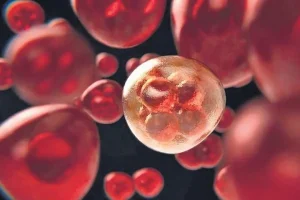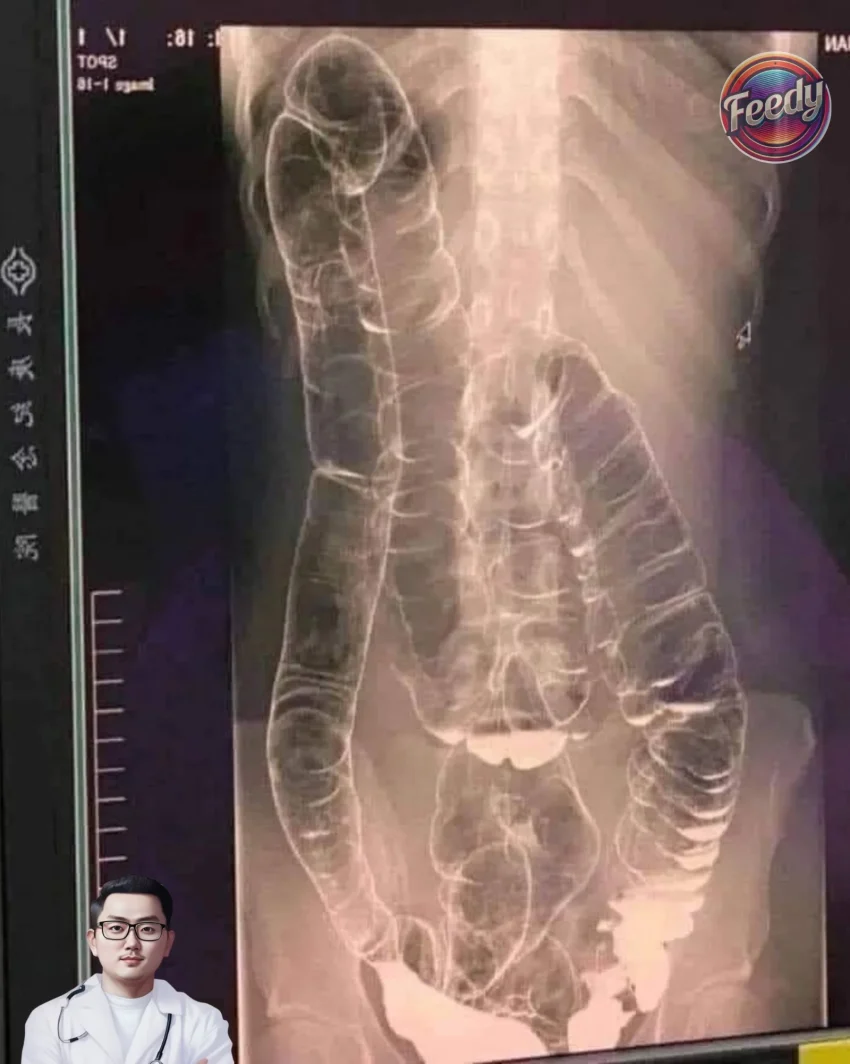The effects of chronic constipation can be far more severe than most people know, despite the fact that it is a typical problem that many people encounter at some point in their life. Chronic constipation may seem like a small annoyance, but if left untreated, it can cause major health issues that are not only uncomfortable but may even be fatal. Untreated chronic constipation can be quite harmful, as seen by a recent instance involving a young woman.
For years, the woman in question had battled persistent constipation. But after she spent more than two weeks without having a bowel movement, things took a turn for the worst. At first, she was reluctant to seek medical help even though she was becoming more and more uncomfortable, thinking the problem would go away on its own. She didn’t choose to see a doctor until the symptoms become intolerable. The results of the X-ray, which was requested, were startling: her colon had grown considerably and was now reaching her chest. She was so bloated and distended that her colon’s typical folds were almost nonexistent.
The colon’s sudden growth was a glaring sign that the constipation had turned into a chronic condition, with grave repercussions. Numerous problems, some more serious than others, can result from persistent constipation. The young woman’s health was seriously threatened by the severe distension of her colon. Because the waste could not be adequately released, the accumulation of stool in her intestines led to a hazardous buildup of toxins in her body. Hemorrhoids, anal fissures, and, in severe situations, potentially fatal intestinal blockages are among the health problems that could result from this.
Studies have also indicated a connection between persistent constipation and a higher risk of colon cancer, in addition to the immediate dangers of physical discomfort and misery. Long-term constipation is thought to increase the risk of colon cancer because it exposes the colon lining to toxins and waste products over a longer period of time, however the exact association between the two conditions is unclear. Over time, these toxins may harm the colon by causing aberrant cell proliferation and the emergence of malignant cells when they become lodged in the digestive tract.

Fortunately, a few easy lifestyle adjustments and routines can frequently prevent or relieve constipation. One of the best strategies to maintain a healthy digestive tract is to eat a well-balanced, high-fiber diet. Fiber gives stool more volume, which facilitates passage and eases the burden on the colon. Good sources of fiber include fruits, vegetables, whole grains, and legumes. Staying hydrated is crucial in addition to eating a diet high in fiber. Constipation can be avoided by drinking lots of water throughout the day, which softens stool and makes it easier to pass.
A healthy digestive tract is also greatly aided by regular exercise. The digestive tract’s muscles are stimulated by physical activity, which facilitates the more effective passage of waste through the intestines. A daily yoga practice or a vigorous walk can be sufficient for many people to promote regular bowel movements.
Another crucial step in avoiding constipation is to establish a regular restroom practice. You can assist train your body to recognize the natural rhythms of digestion and make bowel motions more predictable by scheduling time each day to sit on the toilet, preferably after meals. Constipation might get worse if you ignore the urge to go for extended periods of time.
Natural therapies could provide further alleviation for certain people. Teas made from herbs, including senna, ginger, or peppermint, are frequently used to ease constipation and calm the digestive tract. Because of its inherent laxative properties, magnesium supplements may also be beneficial in encouraging bowel motions.
Even while these natural therapies and lifestyle adjustments can frequently help prevent and relieve constipation, it’s crucial to get medical help if the condition lasts longer than a week or if there is significant pain, bloating, or blood in the stool. These signs can point to a more serious underlying problem that needs to be treated right now. In order to prevent long-term harm, early detection and treatment are crucial. If chronic constipation is not addressed, it can result in serious problems.
Serious problems resulted from the young woman’s delayed reaction to the symptoms. The likelihood of a dangerously enlarged colon and the related health issues could have been reduced if she had sought medical attention sooner. This is a crucial reminder that chronic episodes of constipation should never be disregarded, even though they may appear to be a manageable problem. In order to preserve gut health and avoid major health issues, early intervention is essential.
In conclusion, chronic constipation can provide serious health hazards, even if it may initially appear like a mere annoyance. Constipation can be avoided by adopting lifestyle modifications such eating a diet high in fiber, drinking plenty of water, exercising frequently, and developing a regular bathroom schedule. Herbal teas and magnesium supplements are examples of natural therapies that can help. However, it’s imperative to get medical help right away if constipation lasts for an extended period of time or is accompanied by severe symptoms. Your gut health can be preserved and long-term harm can be avoided with early management.
